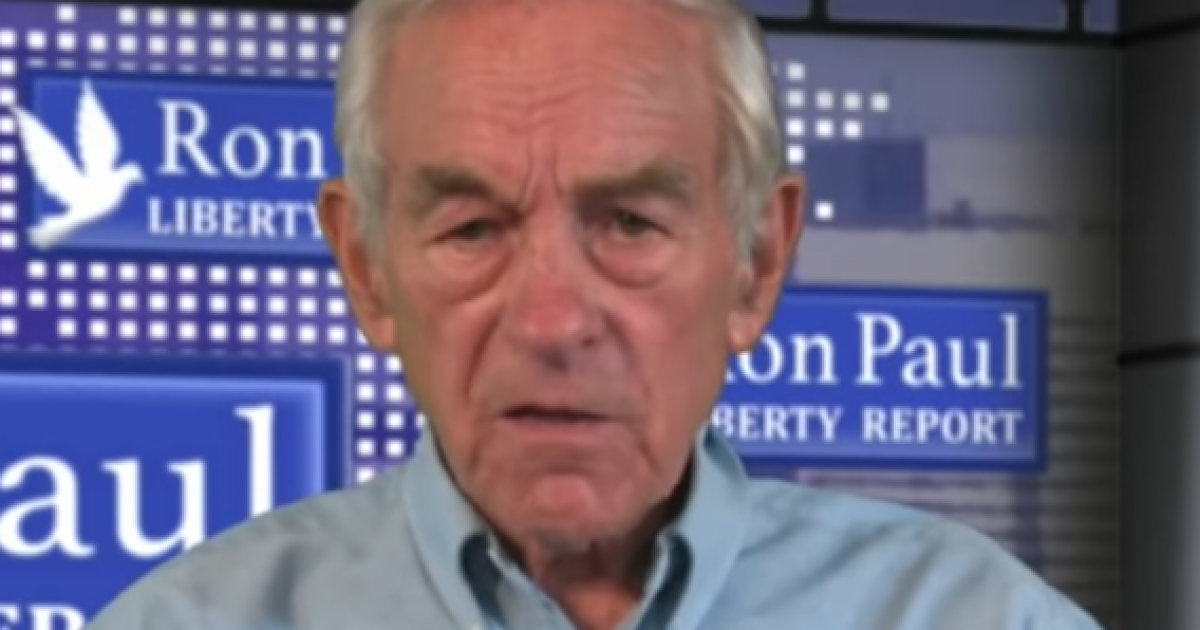
Ron Paul recently penned a piece that called out Federal Reserve Chairman Jerome Powell for his decision to pursue inflationary policies.
In an article titled “The Fed’s Brilliant Plan? More Inflation and Higher Prices” Paul highlighted how the Fed chairman is abandoning its policy of “inflation targeting”, wherein the fed attempts to keep a price inflation rate of around two percent.
This times around the fed will let inflation go above two percent to cancel out previous periods of lower inflation. Paul observed that “Powell’s announcement is not a radical shift in policy. It is an acknowledgment that the Fed is unlikely to reverse course and stop increasing the money supply anytime soon.”
After the 2008 economic crisis, the Fed pursued an expansionary monetary policy. As the former congressman highlighted, this easy money led to “low interest rates and an explosion of debt.” Household debt stands north of $14 trillion and business debt is over $16 trillion dollars respectively, while the national debt stands at over $26 trillion.
Due to the high levels of debt, the Fed is compelled to keep the printing presses going in order to keep interest rates low. Paul noted the artificial nature of these rates and why a free market interest rate system would pose economic run for many economic actors who rely on easy money to stay afloat:
The explosion of debt puts pressure on the Fed to keep increasing the money supply in order to maintain low interest rates. An increase in rates to anything close to what they would be in a free market could make it impossible for consumers, businesses, and (especially) the federal government to manage their debt. This would create a major economic crisis.
Since 2008, the Fed has used multiple rounds of “quantitative easing” to grow its balance sheet. Per a Bloomberg report, the Fed is currently the biggest investor in the world and possesses approximately one-third of bonds backed by American home mortgages.
Congress has enabled the Fed to grow its portfolio by granting the central bank the power to prop up businesses, state, and local governments with trillions of dollars of payments to facilitate an economic recovery after governments foolishly implemented draconian lockdowns.
Paul provides a basic economic overview of the nature of inflation, which is generally described in an erroneous manner by your typical economic textbooks:
Contrary to what most “mainstream” economists claim, a general increase in prices is an effect — not a cause — of inflation. Inflation occurs whenever the central bank creates money. Increasing the money supply lowers interest rates, which are the price of money, distorting the market and creating a bubble (or bubbles) that provides the illusion of prosperity. The illusion lasts until the inevitable crash. Since the distortions come from money creation, the system cannot be “fixed” by just requiring the Fed to adopt a “rules-based” monetary policy.
The former congressman is aware that the monetary activism can create a short-term spike in economic activity, but it’s ultimately unsustainable in the long-run:
Once the lockdowns end, the Fed’s actions may lead to a short-term boom. However, the long-term effect will be even more debt, continued erosion of the average American’s standard of living, and the collapse of the fiat money system and the welfare-warfare state. The crisis will likely be brought on by a rejection of the dollar’s reserve currency status. This will be supported both by concerns about the stability of the US economy and resentment over America’s hyper-interventionist foreign policy.
What’s at stake is no joke. If an economic crisis strikes, there will be social upheavals and calls for more government to supposedly rescue them from the “failures” of free markets.
Unlike most political commentators, the former Texas congressman offers a pro-liberty alternative to solving these problems:
However, if pro-liberty Americans are able to force Congress to begin cutting spending — starting with the money wasted on militarism — and to move toward restoring a sound and sane monetary policy that includes ending the Federal Reserve, we can minimize an economic crisis and begin restoring limited constitutional government, a free-market economy, and respect for liberty.
The fact remains that America has largely deviated from its limited government origins by embracing central banking and public administration since the Progressive Era. For America to correct course, it must start rolling back unconstitutional bureaucracies and abolishing the Federal Reserve and allowing for sound money to emerge in the free market. Whether or not politicians will bother to listen and implemented these policies is a separate story.



